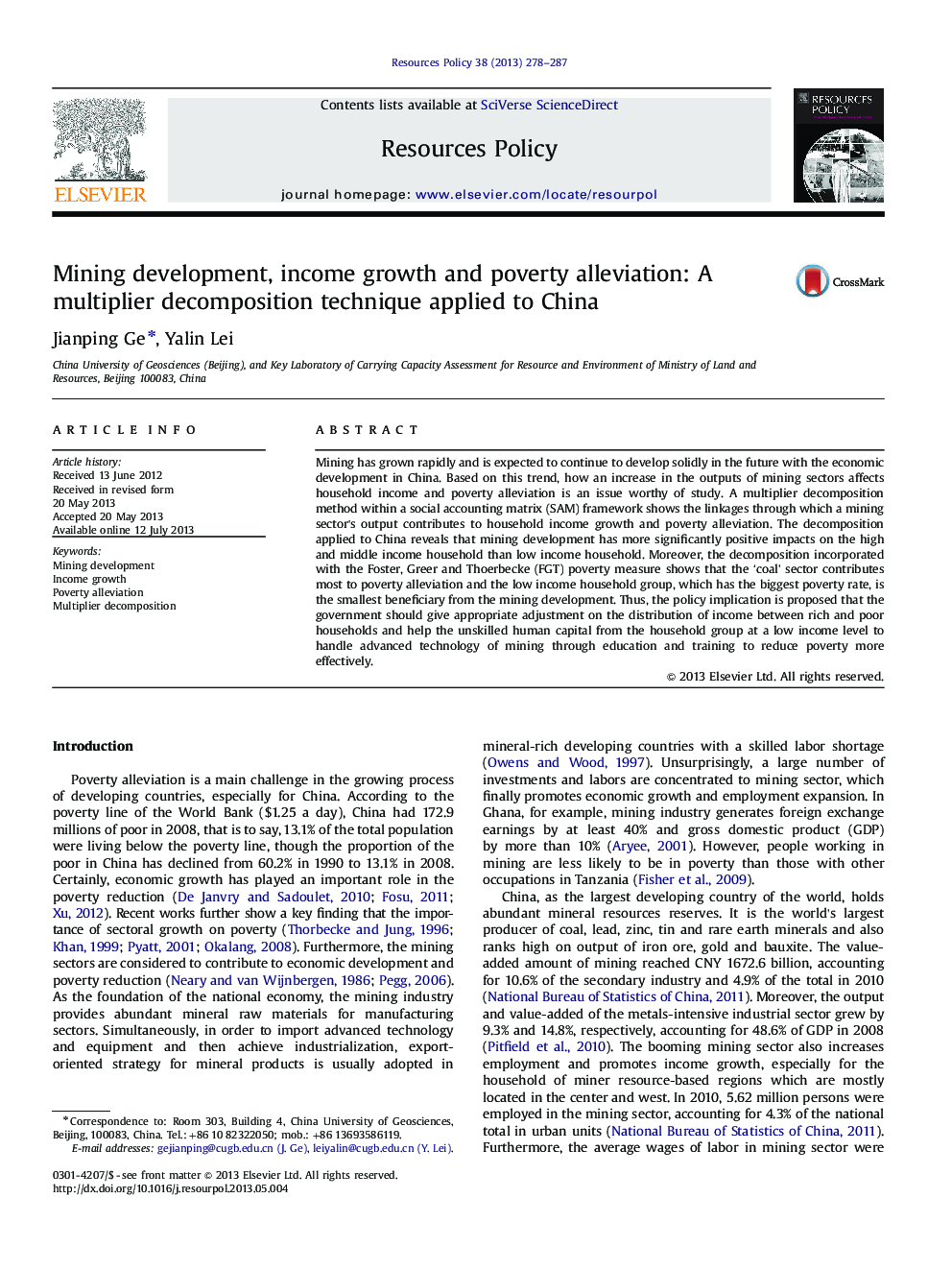| کد مقاله | کد نشریه | سال انتشار | مقاله انگلیسی | نسخه تمام متن |
|---|---|---|---|---|
| 986285 | 934846 | 2013 | 10 صفحه PDF | دانلود رایگان |
• We apply the multiplier decomposition with the incorporation of the FGT poverty measure to evaluate the impacts of mining development on household income and poverty alleviation.
• Mining development has more significantly positive impacts on the high and middle income household than low income household.
• The ‘coal’ sector contributes most to income growth and poverty alleviation.
• The low income household group is the smallest beneficiary.
Mining has grown rapidly and is expected to continue to develop solidly in the future with the economic development in China. Based on this trend, how an increase in the outputs of mining sectors affects household income and poverty alleviation is an issue worthy of study. A multiplier decomposition method within a social accounting matrix (SAM) framework shows the linkages through which a mining sector's output contributes to household income growth and poverty alleviation. The decomposition applied to China reveals that mining development has more significantly positive impacts on the high and middle income household than low income household. Moreover, the decomposition incorporated with the Foster, Greer and Thoerbecke (FGT) poverty measure shows that the ‘coal’ sector contributes most to poverty alleviation and the low income household group, which has the biggest poverty rate, is the smallest beneficiary from the mining development. Thus, the policy implication is proposed that the government should give appropriate adjustment on the distribution of income between rich and poor households and help the unskilled human capital from the household group at a low income level to handle advanced technology of mining through education and training to reduce poverty more effectively.
Journal: Resources Policy - Volume 38, Issue 3, September 2013, Pages 278–287
